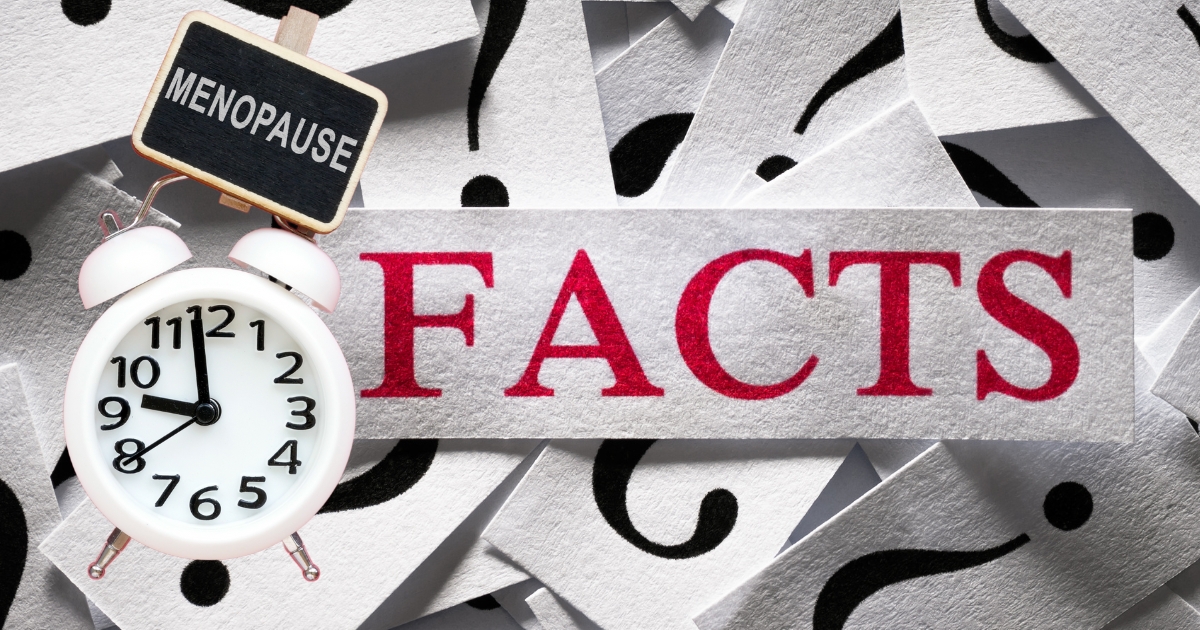
Menopause Myths: Finding Facts Among Fiction
Menopause is a natural phase of life that every woman goes through, yet it’s surrounded by myths and misconceptions. Misinformation about this time of life can lead to unnecessary fears, poor health decisions, and frustration. Understanding the facts about menopause and how it affects your health is key to managing it with confidence. Below, we’ll break down common myths, uncover the facts, and provide practical advice to empower you during this transition.
Understanding Menopause and Health
Menopause marks the end of your menstrual cycles. Officially, a woman is in menopause when she hasn’t had a period for 12 consecutive months. While it typically occurs in your late 40s or early 50s, every woman’s experience is unique. Hormonal shifts during this time can lead to symptoms like hot flashes, mood swings, and changes in sleep patterns. However, it’s not just about the symptoms. Menopause also presents opportunities to reassess your overall health and make choices that support your well-being.
During this phase, your estrogen levels decline, which can impact your bone health, heart health, and even cognitive functions. By understanding the effects menopause has on your body, you can take steps to maintain your physical and emotional health. Remember, this is not a “loss of youth” but rather a stage where you can adapt and thrive.

Unpacking Common Menopause Myths
Many myths around menopause perpetuate unnecessary fears or encourage unhealthy practices. Here’s a look at some widely believed myths and the truths behind them:
Myth 1: Menopause Starts Suddenly
- Fact: Menopause doesn’t happen overnight. Most women experience a transitional phase called perimenopause, which can last years. During perimenopause, you may notice irregular periods, hot flashes, or other symptoms as your body begins preparing for menopause. These changes are normal, though the timeline can vary widely from woman to woman.
Myth 2: Menopause Means You Can’t Enjoy Sex
- Fact: While hormonal changes may affect libido or vaginal lubrication, menopause doesn’t have to mean the end of a satisfying sex life. There are a variety of moisturizers, lubricants, and hormone therapies that can help. Communication with your partner and prioritizing intimacy are also key.
Myth 3: Weight Gain Is Inevitable
- Fact: Weight gain isn’t solely due to menopause; it’s often the result of aging, lifestyle habits, and shifts in metabolism. Staying active and focusing on a nutritious diet can help you maintain a healthy weight. Strength training, for instance, can counteract muscle loss that comes with both aging and hormonal shifts.
Myth 4: Hormone Replacement Therapy (HRT) Is Always Dangerous
- Fact: HRT isn’t as risky as some myths suggest. It’s true that certain types of HRT can carry risks for some women, but for others, it can relieve symptoms like hot flashes and prevent bone loss. Speak to your doctor about your medical history and risk factors to decide if it’s the right choice for you.
Myth 5: Menopause Is All About Hot Flashes
- Fact: Hot flashes are common, but they’re just one part of the experience. Other symptoms can include night sweats, sleep disruptions, mood changes, and even joint pain. Some women may have very mild symptoms, while others may find their quality of life impacted more significantly.
Myth 6: Menopause Affects Only Physical Health
- Fact: Menopause influences mental health as well. Mood swings, anxiety, and memory lapses can happen due to hormonal fluctuations. Managing mental health is just as important as addressing physical symptoms. Practices like mindfulness, counseling, and regular exercise can boost emotional resilience during this time.
Actions to Support Your Health During Menopause
Taking control of your health can make the transition smoother and help you thrive during this life stage. Below are actionable tips to keep you feeling your best:
- Eat for Your Bones
Declining estrogen levels during menopause can weaken your bones. To combat this, increase your intake of calcium-rich foods like leafy greens, dairy products, almonds, and tofu. Vitamin D is also essential, so get outside for some sunlight or add fortified foods and supplements to your diet. - Stay Active
A mix of aerobic exercise, strength training, and flexibility-based activities like yoga can help with weight management, improve mood, and promote better sleep. Physical activity also strengthens bones and supports heart health. - Prioritize Sleep
Hormonal changes can lead to difficulty sleeping, but you can create better sleep habits. Keep your bedroom cool, avoid screens before bed, and stick to a regular sleep schedule. If night sweats disrupt your rest, lightweight, moisture-wicking bedding and pajamas can help. - Track Your Symptoms
Keeping a log of your menopause symptoms can help you identify patterns and triggers. This information will be valuable when discussing treatment options with your doctor. For example, you may notice hot flashes occur more often after drinking caffeine or alcohol, allowing you to adjust your consumption. - Seek Support When Needed
Changes in mood or increased anxiety don’t have to be managed alone. Joining a support group or seeking help from a therapist can provide space to process your emotions and gain helpful coping strategies. Many women find comfort in connecting with others going through similar experiences.
Menopause Is About Redefining, Not Ending
Menopause doesn’t signal the end of your vitality or womanhood. On the contrary, it marks a new beginning. Without the demands of your monthly cycle, you have an opportunity to focus on your own priorities and goals. Many women report a renewed sense of freedom and empowerment during this stage of life.
Health professionals are invaluable allies on this journey. From gynecologists to nutritionists, don’t hesitate to build a medical support team that can guide you through the changes. They can provide personalized advice, whether you’re trying to manage symptoms naturally or considering medical treatments like HRT.
Recognizing Your Power and Resilience
Your body has carried you through life’s ups and downs, and menopause is another chapter that showcases its adaptability. When armed with the right information, this chapter doesn’t have to be filled with uncertainty. Focus on your health, build support systems, and refuse to subscribe to myths that diminish your experience.
Menopause is a shared experience among women, which means you’re not alone. By busting the myths, focusing on facts about menopause, and prioritizing your well-being, you can approach this phase with clarity, confidence, and grace.











